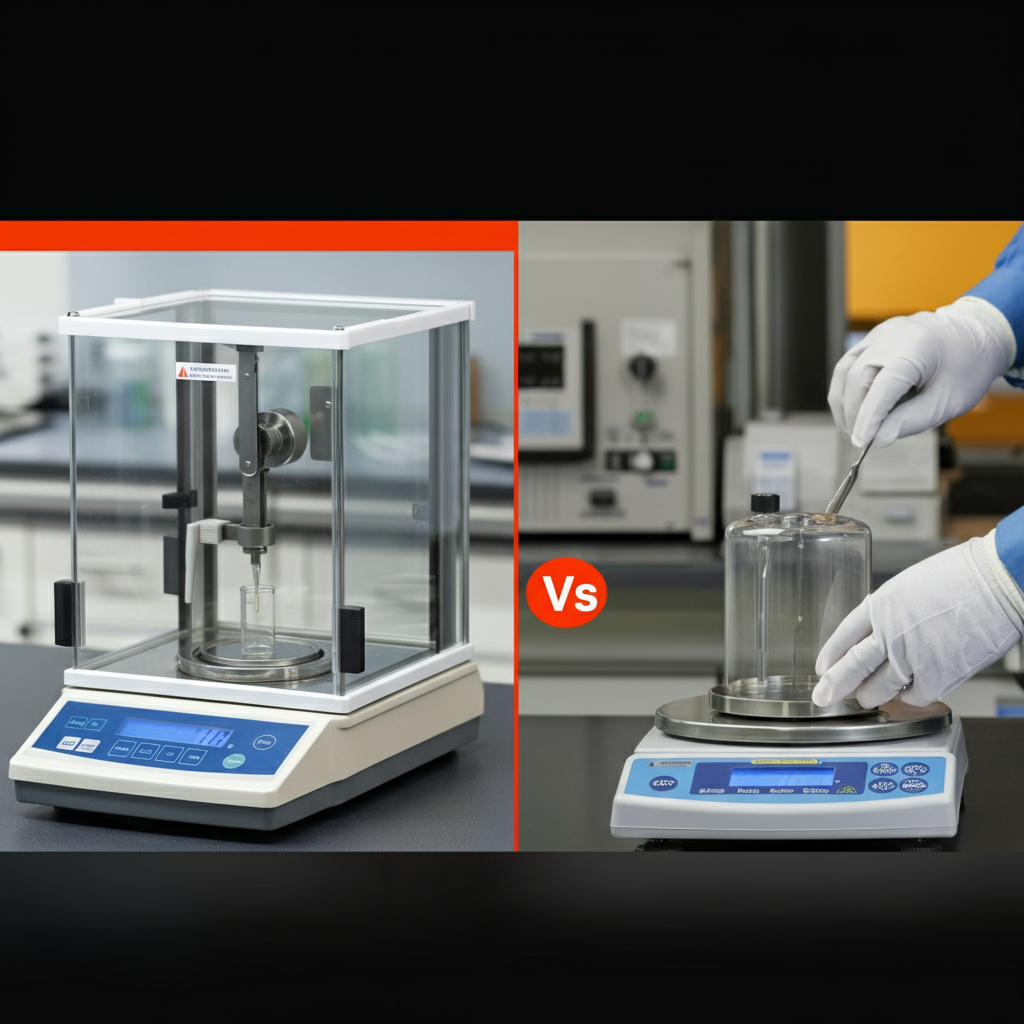
Choosing the right measuring tool is crucial for ensuring precision and efficiency across different applications. Both analytical balances and scales are essential tools, but they cater to different needs. Understanding their key differences can help buyers make an informed decision. This article will compare these two devices in terms of their accuracy, capacity, readability, and applications, helping you invest in the right equipment for your requirements.
Key Differences Between Analytical Balances and Scales
| Feature | Analytical Balance | Scale |
|---|---|---|
| Accuracy | Extremely high (readability to 0.1 mg or 0.01 mg) | Moderate to low (readability to 0.1 g or higher) |
| Capacity | Typically lower (up to 200-300 g) | Higher (several kilograms or more) |
| Readability | Ultra-sensitive, measures minuscule variations | Reliable for bulk or general measurements |
| Applications | Pharmaceuticals, research labs, chemical analysis | Industrial, retail, shipping, general lab tasks |
| Cost | Higher cost due to advanced sensitivity | More affordable and accessible |
| Environmental Sensitivity | Requires controlled conditions for top accuracy | Functions well in varied environments |
Analytical Balance Overview
An analytical balance is engineered for precision weighing with extreme accuracy. It can detect microgram-level changes, making it indispensable in applications like pharmaceutical research, chemical preparation, and scientific experimentation.
These balances require a highly controlled environment, as environmental factors like humidity, air currents, or temperature shifts can compromise their accuracy. Analytical balances are best suited for buyers who require micro-level measurements, such as for developing new compounds or conducting complex analyses. However, their advanced features come with a higher price point and maintenance requirements.
Scale Overview
A scale, on the other hand, is built for versatility and robust use in settings requiring less precision. Commonly found in industries, retail, and shipping, scales handle larger weights efficiently. Their ease of use and reliability make them suitable for general applications such as weighing parcels, formulating materials, or working with bulk goods.
While scales are less sensitive than analytical balances, they are highly durable and function well across different environments. Additionally, they are more budget-friendly, making them an excellent choice for buyers prioritizing capacity and affordability over ultra-high precision.
Practical Considerations for Buyers
-
When to Choose an Analytical Balance
Analytical balances are ideal for professionals working in environments requiring high accuracy, such as researchers, pharmacists, or lab technicians. Choose this option if your work focuses on micro-level measurements with controlled conditions. -
When to Opt for a Scale
Scales are a practical choice for tasks involving larger weights, such as industrial or commercial operations. If you require simpler functionalities at a lower cost, a scale will meet your needs without compromising reliability for standard applications.
Questions to Ask Before Buying
- How much accuracy do you need?
- What is the typical weight range of your samples?
- Does your workspace allow for sensitive equipment like an analytical balance?
- What is your budget for this purchase?
Final Thoughts
Both analytical balances and scales are indispensable tools in their respective domains, but your purchase should align with your specific goals and operational needs. Analytical balances excel in laboratories where precision is critical, while scales provide efficiency and affordability for bulk weighing and everyday tasks.
By considering your application, budget, and accuracy demands, you can confidently select the best equipment to enhance your precision measurement capabilities. Looking to upgrade your laboratory or industrial tools? Explore our diverse range of analytical balances and scales today!